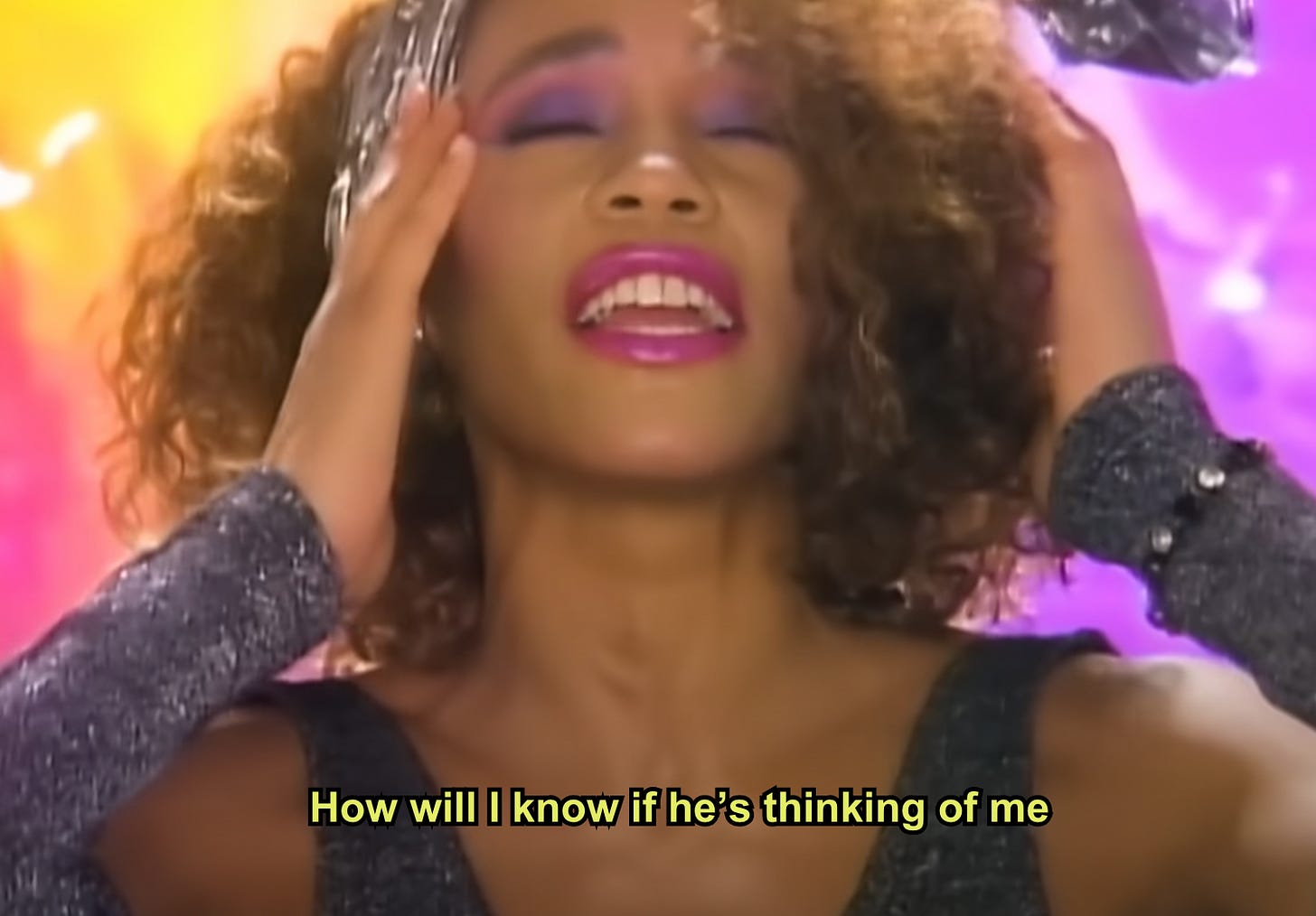Thinking of You
Taking actual time to care about people
Last weekend I was on my way to upstate Vermont to stare into a meadow for four days and stopped in at a textile thrift store in Turners Falls. My mind was goopy with that about-to-be-resting daze that sets in when you know vacation is right around the corner. I wandered around the rooms stacked floor-to-ceiling with quilting scraps, got in the way of volunteers while sorting through linen on the floor, jumped when I felt something rub against my leg that was just a fluffy shop cat.
When I couldn’t get my card out, slid in the chip instead of tapping, said no to a bag then changed my mind then changed my mind again, this happened:
Me, stuffing purple mesh into my bag: Oh my gosh jeez I’m so sorry I’m pretty out of it right now!
Extremely sweet person working checkout: Alright, well there’s a bathroom in the back down that hallway there if you need to take a minute, a walking trail right behind this building if you need some fresh air, and a bunch of coffee places just down the road I can give you directions to if you need a little something to – [they didn’t say words here, they did sparkle hands and made big eyes]
My gut response was deference; no no, I’m not that out of it, I was overblowing it, I’m very fine, actually, thank you. Those options are for a person in acute distress and I am just not 100% is all. But then I realized I could seriously use an iced coffee and asked them to point me in the right direction. We joked about cold brew being designed for panic attacks. They told me about the muffins at a cafe where they also worked. I picked out a plastic pink diamond ring from a free box on the counter and left smiling.
I couldn’t stop thinking about it for the rest of the day: Their generosity, my kneejerk refusal, the final spread of warmth realizing those options could be for me.
Care is something that gets puzzled over with the attentiveness of a bomb squad in community spaces I’ve belonged to. We tape up crisis response team phone numbers to the wall near the desk. Attend mental health first aid and deescalation trainings. Practice the menu of offers if money is a barrier or they need something outside what we are able to give or seem otherwise in a stressful place. These forms of care are deeply important and actually need us to overinvest in them because they require skill and intention!
But I’ve also experienced a sort of formality with them, an “In Case of Emergency” distance. Techniques and phone numbers and offers to be made only for certain people at key moments in visible forms of distress. Again: very important.
It also quietly implies that care is not for everyone all of the time.
What if we treated care as something everybody deserves, and not only a set of actions reserved for specific circumstance? I wonder if this is more about “how” care is given than about “what” care is given.
What was offered to me in the store that day – a bathroom, a trail, a coffee shop –required no deep preparation. It followed no checklist. It was presented as instantly and unquestioningly as what’s usually said after someone says they’re out of it, which is “Oh you’re fine.”
This is the beauty of alternative community space and the result of disability and care activism at work; we all place somewhere on a continuum of ability, we all could use genuine, proactive, enthusiastic offers of support every day. It is how we let our friends and collaborators and strangers know that we’re thinking of them. It’s how we feel something different so that we may make something different together, each taking up a small piece of the puzzle.
So the next time you’re interacting with a friend, a fellow volunteer, a workshop participant or customer or person you see taking a break while mowing their lawn:
What if you asked them how they’re doing and meant it?
What if you pointed the way to water or a seat or outdoor space without them asking?
What if you embedded these as fixed within your social routine, as regular as saying hello?
What if you looked at what you have to offer – an arm to hold a baby, an extra protein bar from your bag, an ear for listening or a hand to squeeze – and make it available?
What if you assumed everyone could use a little something all of the time?
The worst someone could say is “no thanks.” But you will make the world feel a little softer for them that day, and who doesn’t need that?





It made me so happy to read about this warm interaction! 🩷 This got me thinking that there are so many ways to care. I wish we could expand the concept of "love languages" out of couples therapy and into everyday conversation. I want to learn what languages of care look like for different people.
Also, love love love that you visited the delightful town that is Turners Falls. Such wonderful people there! I used to live in that area.
What a beautiful directive for us all. I think this is how folks felt when grandma used to call someone by name throughout the conversation. So rare that each of us get the acknowledgment we deserve.